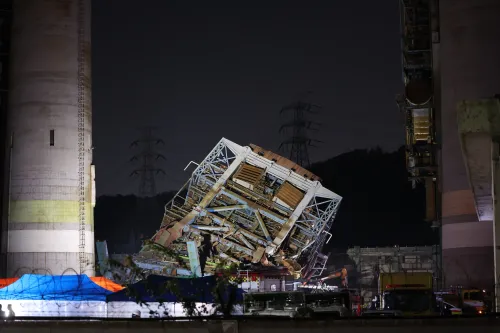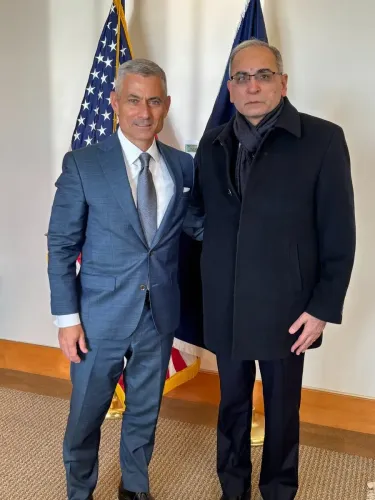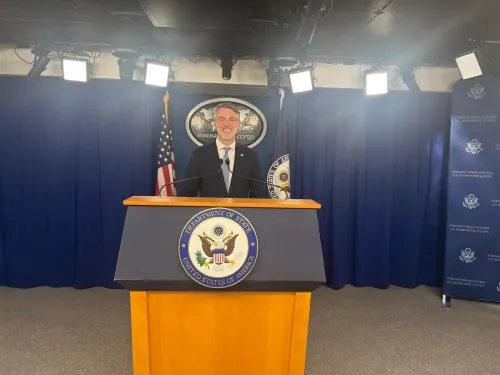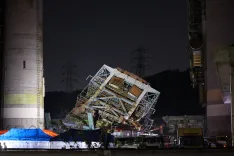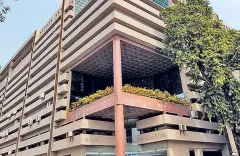What Are the Causes Behind the Violent Clashes in Tripoli?

Synopsis
Key Takeaways
- Recent violence in Tripoli marks a significant escalation in armed conflicts.
- The death of a key security chief has heightened tensions.
- Local authorities have declared a state of emergency.
- Flight operations at Tripoli airport are suspended.
- Urgent calls for dialogue and de-escalation are made by international bodies.
Tripoli, May 13 (NationPress) Intense clashes have erupted in the Libyan capital, Tripoli, between competing armed factions, following reports of the death of Abdul-Ghani al-Kikli, commonly referred to as Ghaniwa, the head of the Stability Support Department associated with the Presidency Council.
On Monday, local media outlets reported that al-Kikli was killed within the premises of the 444 Brigade, which operates under the Tripoli Military Zone.
Simultaneously, an unnamed security source indicated that the circumstances surrounding al-Kikli’s presence at the 444 Brigade headquarters remain unclear.
Reports of al-Kikli's death have coincided with multiple residents in southern Tripoli confirming they heard heavy gunfire, indicating escalating security tensions across various areas of the city.
In recent hours, local media has shared video footage depicting military movements in and around Tripoli, noting that armed groups from Zawiya, Zintan, and Misurata are converging towards the capital.
The Medical Emergency Department of the Ministry of Health has issued a full alert in response to the clashes, while the Interior Ministry has advised Tripoli residents to remain indoors for their safety, as reported by Xinhua news agency.
Meanwhile, the Tripoli Mitiga International Airport has announced that all flights are suspended and redirected to the Misurata International Airport, located approximately 250 km east of Tripoli. Additionally, schools in some regions of Tripoli are closed due to the ongoing violence.
The United Nations Support Mission in Libya (UNSMIL) has called for a de-escalation of tensions in Tripoli.
“UNSMIL is closely monitoring reports of military buildup and rising tensions in Tripoli and the broader western region. We urgently appeal to all parties to de-escalate the situation, avoid any provocative actions, and resolve disputes through dialogue,” stated UNSMIL.
“The Mission firmly supports Libyan efforts, including those led by community leaders, to reach a peaceful resolution and stresses the critical responsibility of all parties to safeguard civilians,” added the statement.
Since the fall of former leader Muammar Gaddafi in 2011, Libya has faced ongoing insecurity and political turmoil.

